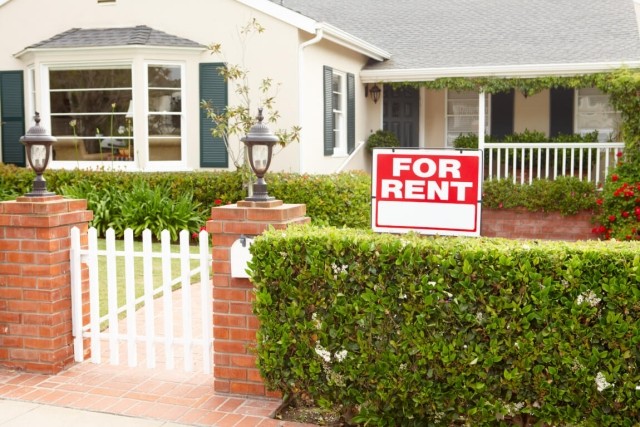Did you know that certain local, state, and federal laws are designed to protect renters? These laws range from the Federal Fair Housing Act to local statutes about when the landlord can enter your rental. While you will probably never encounter any problems with your apartment or rental home, being armed with knowledge is never a bad thing. So, here’s everything you wanted to know about renters’ rights.
The Federal Fair Housing Act (FHA)
The Federal Fair Housing Act was passed on April 11, 1968, when it was signed by President Lyndon Johnson. It was a follow-up to the Civil Rights Act of 1964. This law prohibits discrimination in the rental, sale, or financing of housing based on race, color, national origin, religion, sex, familial status (including children under the age of 18 living with parents or legal custodians), and disability. [Sec. 806. [42 U.S.C. 3606] This means that as a renter, you are protected from being denied housing or treated unfairly based on any of these factors.
Why it’s important:
This law ensures that landlords cannot discriminate against you based on the factors above. For example, a landlord can’t ask you if you are expecting or how many children you have. They can’t enact different rules based on discriminatory beliefs (i.e., setting different rules for you because you have children). They can’t offer different housing services or facilities or create ads that indicate any preference, limitation, or discrimination.
Keep in mind that age isn’t a protected class. Age-restricted communities are within their rights to limit residents to a specific age group. Service and emotional support animals, which support a protected group, must be allowed even in rentals that are otherwise pet-restricted. Other exceptions include some housing owned by religious organizations or private clubs.
Of course, there’s much more to this law. If you want to learn more about FHA, be sure to visit the US Department of Housing and Urban Development.
Landlord-Tenant State Laws
These laws vary by state, but they often have certain similarities. You’ll have to research your local and state laws to see what applies where you live. Basically, landlord-tenant laws outline what is and isn’t permitted in your lease agreement. These laws may impact how much of a security deposit you pay, whether you’ll pay a pet deposit, and the reasons your security deposit may be withheld.
Why these laws are important:
These laws vary from state to state, so researching them will give you a better understanding of what to expect when moving, especially if you are moving to another state. For example, if you currently live in California, where non-refundable pet deposits aren’t permitted, and you are moving to Georgia, where pet deposits are permitted, then you may end up spending more money to move than you budgeted for if you have a pet.
There are similar laws in every state that you should be aware of, as well. These include:
The warranty of habitability
Basically, this is a fancy way of saying that a landlord must keep the rental property livable. In other words, the home should be safe, sanitary, and structurally sound. There are no set rules, and each state defines this differently, but basically, your rental should have things like drinkable water, a safe and working electrical system, and a functioning sewer system.
Notice of entry
Most states (but not all) require that a landlord give tenants at least 24 hours’ notice before entering the rental property, unless it is an emergency. The provisions of this law are very different, depending on the state in which you live, so be sure to look this up.
Security deposits
Most landlord-tenant laws include something about security deposits. Some limit how much can be charged, and most provide a deadline for returning the security deposit. Each state sets its own time frame. For example, in Hawaii and Arizona, landlords have 14 days to return the security deposit, but in Alabama and Arkansas, landlords have 60 days.
Rent increases
As a renter, it's crucial to understand your rights concerning rent increases. The laws governing landlord-tenant relationships regarding rent adjustments vary significantly but share a common goal: to guarantee fairness and prevent discrimination. For example, California law requires landlords to give a 60-day notice for rent increases exceeding 10%. These laws, prevalent in states like California, establish a legal framework that mandates specific conditions, such as the requirement for a written notice, typically ranging from 30 to 60 days. This provision ensures tenants have sufficient time to either adjust to the new rate or consider relocation.
Retaliation protections
Some landlord-tenant laws include provisions to protect renters from retaliation by landlords. For example, in California, if a tenant complains about unsafe living conditions or exercises their rights under the lease agreement, the landlord cannot retaliate by raising the rent, decreasing services, or attempting to evict the tenant. This is important to know as a renter because it means you have the right to speak up and assert your rights without fear of repercussions.
Other protections
Many states also provide laws around eviction proceedings, rent payments, late fees, and notices to vacate. Aside from federal laws and landlord-tenant state laws, there may be additional protections for renters at the local level. Cities and counties may have their own regulations and ordinances related to rental properties, such as rent control or tenant relocation assistance. It's crucial to research and be aware of these additional protections in your area, as they may provide you with additional rights and support as a renter. You’ll likely see many of these terms in your lease agreement (yes, it’s filled with jargon, but read it carefully anyway. It’s important!), and they are designed to protect both you, as a renter, and your landlord.
The information provided above is in no way intended to be a substitute for qualified legal advice. Please conduct your own research and comply with all of your state and local laws. If you need legal help, contact the appropriate government agency and/or a qualified lawyer in your area.






